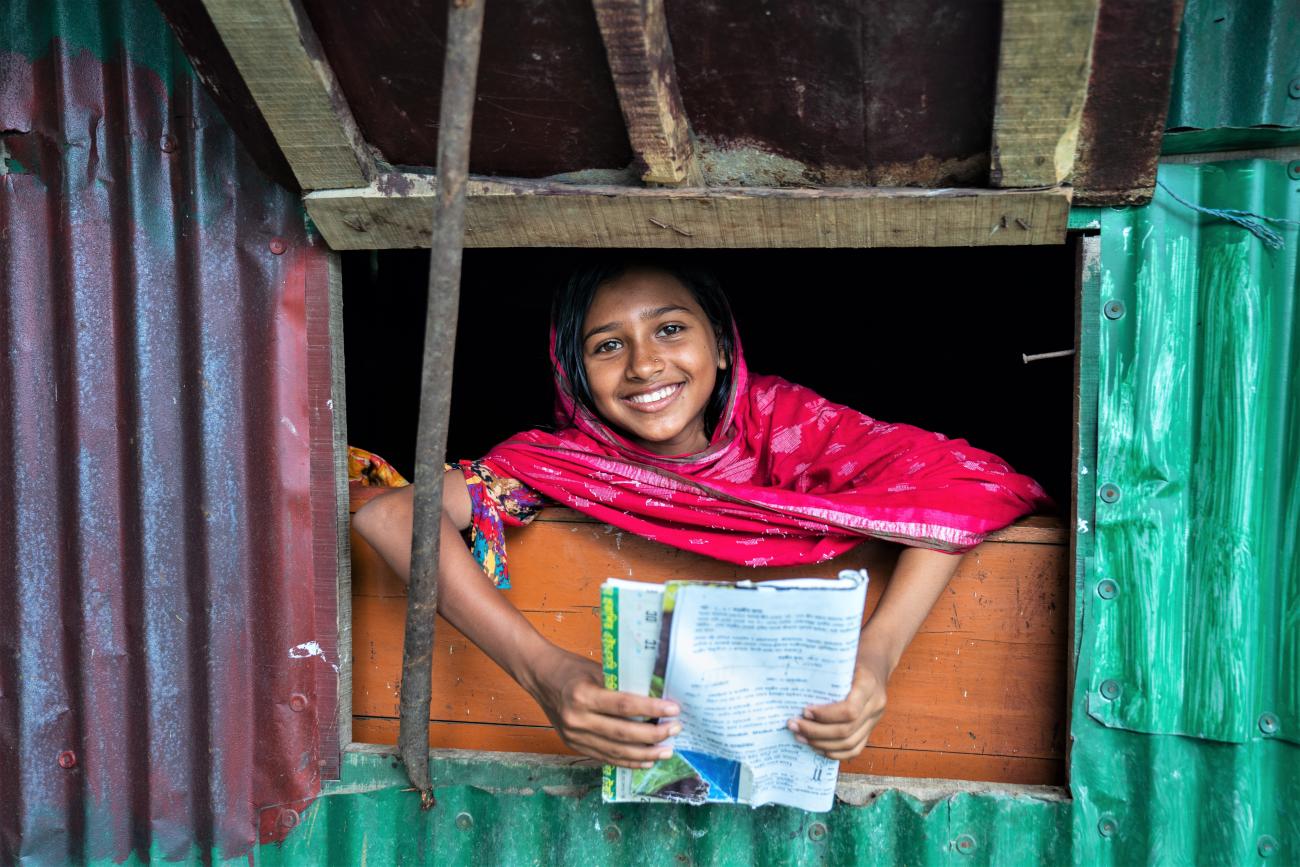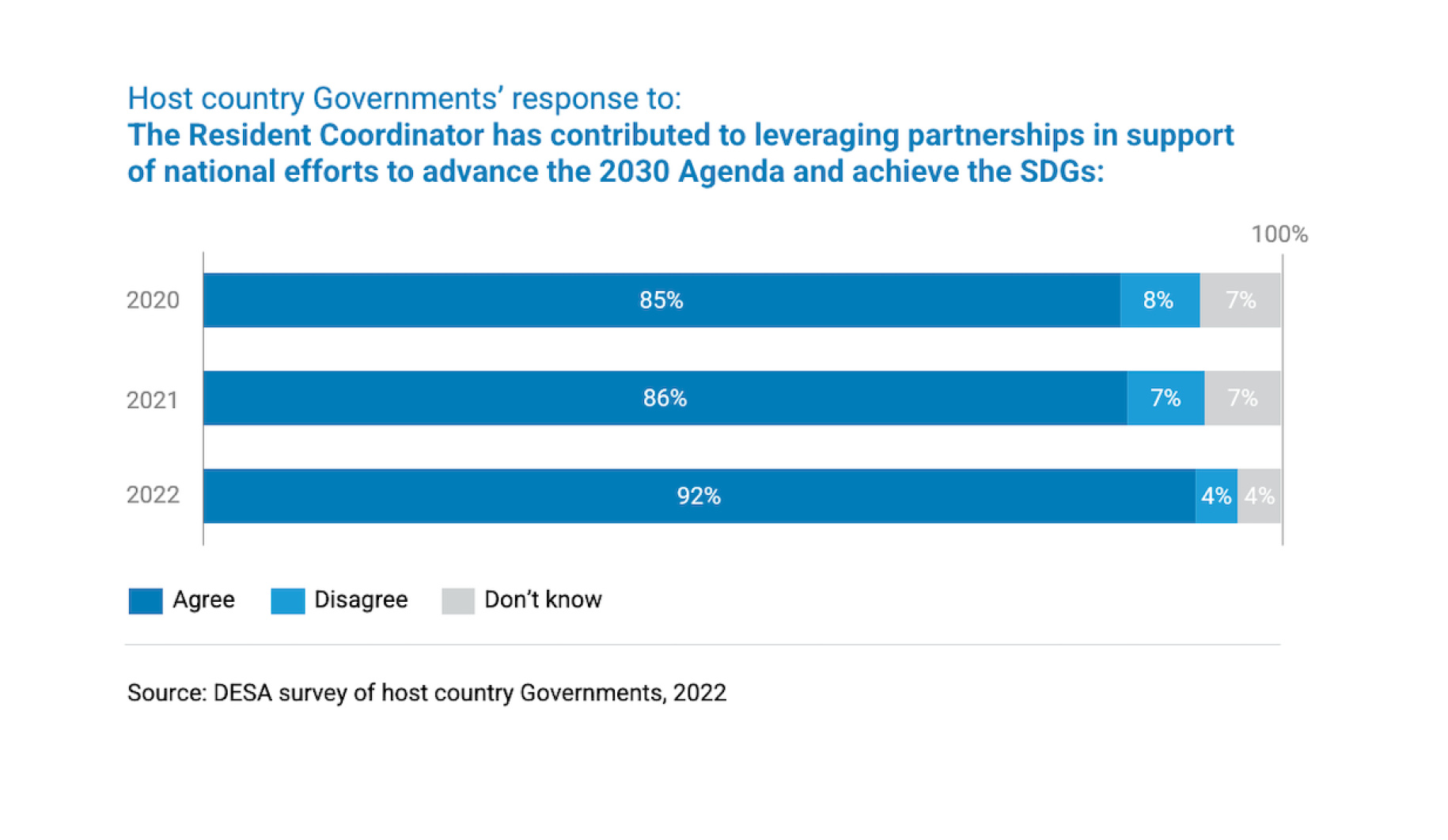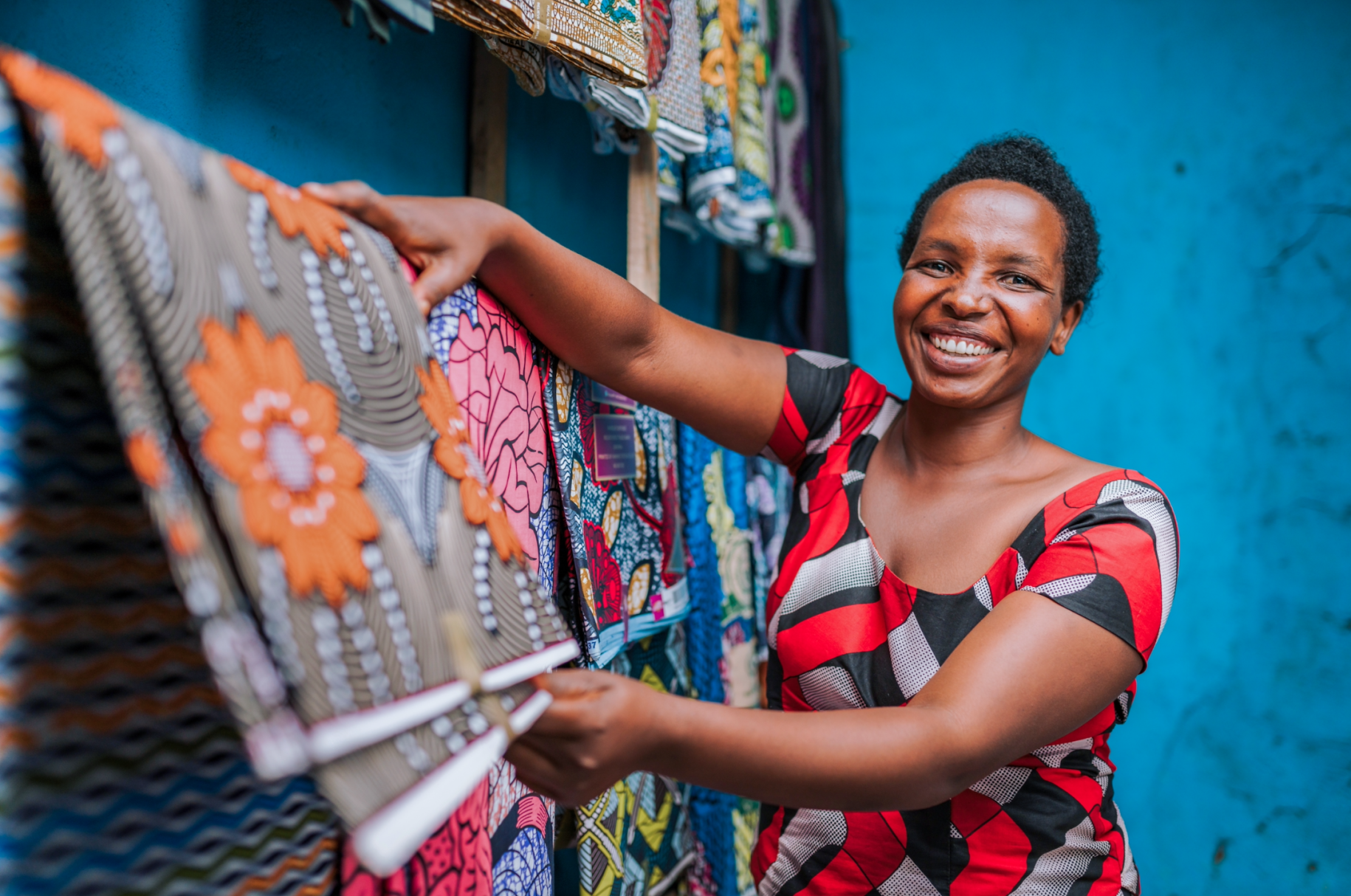Today’s generation of UN teams on the ground, a key investment for a sustainable future

At the halfway mark to the Sustainable Development Goals (SDGs), the world is at an inflection point. Lingering socio-economic impacts of the COVID-19 pandemic, increasing poverty, persisting inequalities, conflicts, rising costs of living, and the widespread effects of the climate emergency are threatening to slow down and undo hard-won sustainable development gains. Five years after sweeping reforms to reposition the UN to serve countries better, UN teams on the ground are rising to these challenges under revamped leadership and pushing for more concerted efforts to support governments and communities across the world.
The 2023 Report of the Chair of the UN Sustainable Development Group on the Development Coordination Office (DCO) and the Resident Coordinator (RC) system dives deep into the real and tangible impacts of investing strategically in development coordination across country, regional and global levels. It is a testament to how far we can go when we work together as one UN.
Here are six ways in which the reinvigorated RC system and fit-for-purpose UN teams on the ground are advancing progress toward the SDGs:
1.Resident Coordinators’ enhanced leadership has enabled UN teams to respond more effectively to the diverse needs and priorities of countries. Resident Coordinators have leveraged their new-found neutral positions to build trust, forge coalitions, incentivize joint approaches and deliver SDG policy and financing solutions, tailored to the different needs and national development priorities of Least Developed Countries, Landlocked Developing Countries, Small Islands Developing States and Middle-Income countries.
- 90 per cent of host Governments continue to agree that RCs have the needed profile and skillsets to deliver effectively;
- 92 per cent say that the UN adequately provides evidence-based policy advice (an increase from 88 per cent in 2021);
- 88 per cent confirmed that RCs effectively lead the delivery of strategic support for national plans and priorities, as in 2021.
2. The RC system continued to lead the charge to eradicate poverty and leave no one behind in countries. For example, Resident Coordinators in 69 countries led UN teams to develop new joint programmes on food security and nutrition. They continued to champion gender equality and women’s empowerment; lead a steady improvement in meaningful engagement of youth in joint planning processes; guide UN teams in supporting national partners in advancing human rights for sustainable development; mobilize assets and expertise from across humanitarian, development and peacebuilding action to advance the 2030 Agenda; and serve as the first responders to sudden emergencies, as those that hit Saint Vincent and the Grenadines, Tonga and Vanuatu.
- Nearly 90 per cent (87 per cent) of host Governments note that today the RC serves as a one-stop shop for the collective UN offer, consolidating the UN’s support to the country – a 35 per cent increase since the reforms in 2019.
3. Resident Coordinators are also forging partnerships with donors, private sector, financing institutions and civil society, to galvanize collective action to advance national development priorities. Whether it was attracting private investments to scale up public health clinics and insurance in Kenya, championing business sustainability in Uzbekistan or working with local academia on water quality assessments in Samoa, the RCs have brought UN expertise together with partners to deliver integrated solutions to a broad range of development challenges.
- 92 per cent of host Governments say that RCs contributed to leveraging partnerships in support of national efforts to advance the 2030 Agenda and achieve the SDGs (compared to 85 per cent in 2020).

4. Resident Coordinators and their teams have played a critical role in unlocking funding for UN teams and boosting access to SDG Financing for national Governments to advance the 2030 Agenda. They established country-level SDG pooled funds to incentivize UN teams’ joint programming and implementation of the jointly agreed roadmaps to advance the SDGs, the UN Sustainable Development Cooperation Frameworks, and led UN teams’ submissions to the global Joint SDG Fund. The Fund, hosted by DCO, has made US $260 million in financial commitments to 119 UN teams since 2019, reaching 188 million people with social protection, building resilience in 42 Small Islands Developing States and supporting the implementation of Integrated National Financing Frameworks (INFFs) in 69 countries. The RCs also play a systematic role in unlocking resources from other global pooled funds, including the Spotlight Initiative, the Central Emergency Response Fund and the Peacebuilding Fund in countries like Haiti, Burkina Faso, Vanuatu and others.

5. The RC system has been instrumental for the UN to communicate with one voice and be more accountable for development results. Development coordination has been particularly effective to articulate the urgent sustainable development priorities in countries, and to help tackle hate speech, misinformation and disinformation in several countries. From raising awareness and establishing a National Plan of Action and a National Observatory against hate speech in Costa Rica, to facilitating a consortium to track and monitor hate speech in real-time during elections in Kenya, RCs are pooling together joint efforts within the UN family and leveraging innovative tools to promote fact-based narratives on pertinent issues. And in 2022, all UN teams produced their annual report on results achieved in country, making both successes and challenges fully visible to Governments and the public.
6. A big part of UN efficiencies achieved have also been steered by the new RC system. The RC system transition of operational services from the UN Development Programme (UNDP) to the UN Secretariat has saved $10 million since 2020 - $3.4 million in 2022 alone. The DCO investments in support of system-wide efforts to advance more joined up operations, cost savings and cost avoidance across the UN development system have led to efficiencies by the system and single UN entities estimated at around $405 million – an increase of 47 per cent from $275 million in 2021. In addition, RCs are leading on implementing high-impact common services such as renewable energy use, gender-responsive procurement, and disability inclusion and accessibility. 80 per cent of host Governments’ agree that the RC helps to minimize duplication of efforts among UN agencies, ensuring the efficient use of resources, a 24 per cent increase since the reforms in 2019.
The returns of investments in development coordination through the Resident Coordinator system are clear. But for these impacts to be sustained, the RC system needs to have adequate, predictable and sustainable funding. The agreed budget of $281 million for the RC system is a critical minimum investment for effective development coordination. Despite significant commitments by Member States, voluntary contributions have increasingly fallen short. In 2022, the RC system faced the largest funding gap to date. This jeopardizes the ability of the RC system to continue to deliver the support that national Governments need.
In these times of crises, demands placed upon the RC system are growing. Ambitions for 2030 need to be met with equal support. Member states need to renew the steadfast commitment that has marked the UN reforms thus far. For people and planet, paving the way for a sustainable tomorrow.
Read the interactive version of the 2023 report here.













